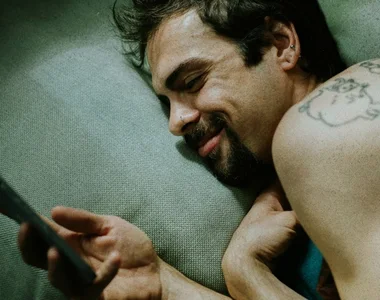
You've probably heard the expression "mental load," that invisible emotional work associated with organizing daily life, managing the home, relationships, and caring for others. Although it's an essential part of the functioning of a family, this burden often falls on women, and many times, goes unnoticed by others.

This includes keeping to schedules, taking care of children, managing a budget, anticipating your partner’s needs, and making everyday decisions. When this burden falls on a single person, emotional exhaustion becomes inevitable and often ends in surrender: you stop looking, you stop fighting for balance, and, in the end, you find yourself telling your partner,
“Do whatever you want.”
But according to experts, this phrase is not as innocent as it seems. Relationship therapist Rebecca Vivash, certified by the British Association for Counseling and Psychotherapy (BACP), explains that what seems like a gesture of freedom is actually a complete surrender of responsibility to the other.
“When you say 'do whatever you want,' you're not sharing the burden, you're handing it all over to your partner, often on top of everything else he/she is already dealing with. This can lead to frustration, burnout, and even emotional blockage.”

Vivash emphasizes that giving choices is not bad, on the contrary, it is necessary, but it should be done in an equal and careful way. A healthier way is to involve both of you in the decision-making process. For example, instead of saying “decide for yourself,” try asking:
"Should we do this or that?"
OR
"Shall we look at the possibilities together?"
This makes decision-making a collaborative act, not a unilateral burden.
Relationship expert Graham Johnston supports this approach and adds:
“If you have an opinion, say it. That way we can negotiate and find a mutual solution. That’s the heart of a healthy relationship.”
Johnston points out that it's frustrating when one partner expects the other to read their mind or always take responsibility for every decision.
“We all face decisions throughout the day, at work, in life, in relationships. But your partner needs a break just as much. Don't always leave the ball in his/her court. The mental load needs to be shared.”





